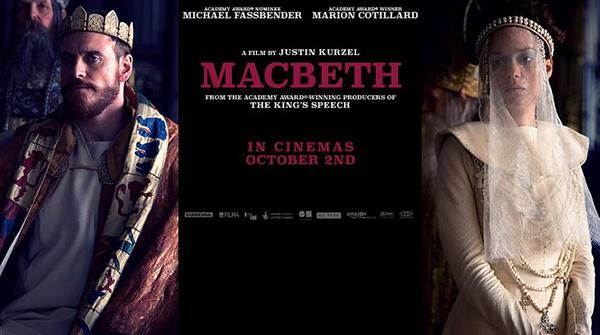‘Macbeth’ enters modern digital age with aplomb

Director Justin Kurzel has re-imagined Macbeth, starring Michael Fassbender and Marion Cotillard.
December 2, 2015
Full of operatic flourish yet grounded in distinct and refreshing human sensitivity, Australian director Justin Kurzel (“The Snowtown Murders”) has created a masterful and unflinching re-imagination of Shakespeare’s famous Scottish play. The archetypal cautionary tale of murder, morality and madness, “Macbeth” stars Michael Fassbender (“12 Years a Slave,” “Steve Jobs”) as the eponymous mad king, with a bold but perfectly cast Marion Cotillard (“La Vie en Rose”) as the elegant and resolute Lady Macbeth. Set in the vast and unforgiving — yet incredibly beautiful — Scottish highlands, all the elements of the film fall into place to create pure cinematic synergy that unabashedly radiates off the screen.
Stripped bare of the pomp and pedestal bestowed upon these prototypical figures of tragedy, both Cotillard and Fassbender revitalize familiar roles with deeply human portraits that are startlingly relatable and completely engrossing. While Fassbender’s portrayal pulsates with an unbridled, misguided masculinity and tragic hubris, Cotillard, whose Anglo-French accent is surprisingly befitting of her role, becomes the epitome of fragility and weary resolve as she gracefully manages the ebb and flow of Macbeth’s inevitable unraveling. This looks to be an exciting Oscar race for the screen pair, especially for Fassbender, as his animalistic performance will be pitted against his critically acclaimed portrayal of the late Steve Jobs in the eponymous film helmed by director Danny Boyle.
To complement — and at times overwhelm — outstanding performances, Director of Photography Adam Arkapaw (HBO’s “True Detective”) captivates audiences with majestic vistas of Scotland. The mystical, ominous mists of the highlands seem to become an externalization of Macbeth’s tortured mind, while the cold light of day and musty candlelit interiors isolate the characters, providing neither warmth nor respite. Complementing Arkapaw’s stunning visuals, Jed Kurzel’s score punctuates the film like the steady bass of a war drum, acting as a constant, sensory reminder of Macbeth’s crumbling mind.
The greatest success of “Macbeth” is that in spite of the countless screen adaptations that have come before it, Justin Kurzel manages to own the material. No matter how sincere, cinematic or fresh previous Shakespearean film adaptations have been, the lyrical but archaic words of the bard always seem to create a subconscious barrier between the film and its audience. It also does not help when these characters have eroded into trite archetypes, overanalyzed by endless slews of literature students across the world. Thanks to Fassbender and Cotillard’s phenomenally visceral and naturalistic performances, this obstruction almost dissolves completely, leaving us with a story about a man and woman holding on to each other as they desperately try to carve out their own fates.
“Macbeth” will be released in select theaters on Dec. 4.
Email Min-Wei Lee at [email protected].


























































































































































